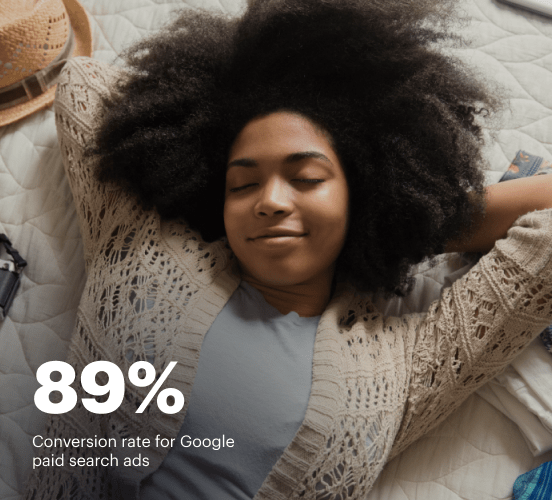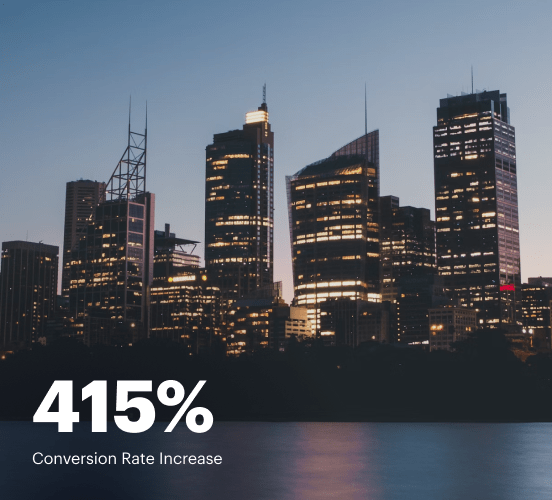How Canva vs. Adobe Target vs. Instapage stack up against each other
Compare Instapage with Canva and Adobe Target to create high-converting landing pages. With personalization, optimization, and collaboration tools, Instapage helps you deliver experiences that drive results.
Get startedSee how Instapage stacks up against the competition
| Feature | Instapage | Other builders |
| Drag-and-Drop Tools | ||
| Conversion-optimized templates | ||
| Manual and AI-powered A/B Tests | ||
| AI content suggestions | ||
| Popups and sticky bars | ||
| Canvas and grid blocks | ||
| Reusable and global elements | ||
| Form and popup builders | ||
| Built-in Heatmaps | ||
| Central analytics dashboard | ||
| Ad-to-page personalization and collections | ||
| Contacts, lists, and email | ||
| Dedicated, full-service CRO experts | ||
| Enterprise-ready platform |
Leading the way in building high-performing landing pages





Why Instapage is the smarter choice for your campaigns
Get everything you need to build, scale, and optimize high-converting landing pages—without coding.
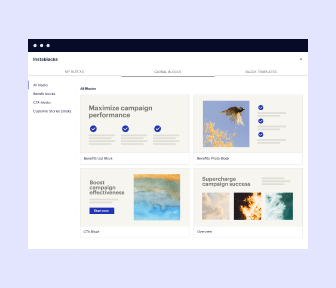
Easier page building without coding
Instapage offers a flexible and seamless page creation experience with a library of 500+ conversion-focused layouts, Instablocks®, a drag-and-drop builder, and AI content generation. With technologies like Thor Render Engine®, you can create on-brand, mobile-responsive landing pages that load quickly and start converting during initial visitor clicks.
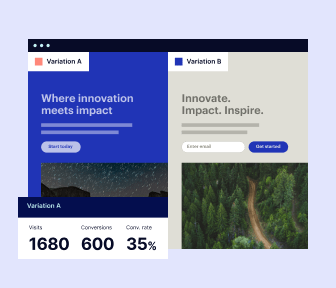
More insights — better results
Instapage lets you see in detail how each landing page experience and variation is performing so you can make targeted changes that boost page conversions. Use heatmaps for a better understanding of on-page activities, run A/B tests and AI-assisted experiments, and then track and evaluate results within robust analytics dashboards.
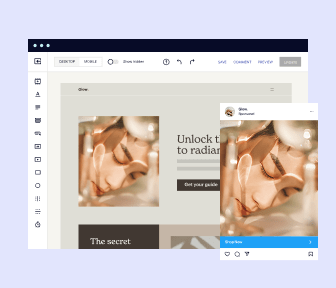
More personalized experiences
Instapage lets you quickly create high-performing landing pages tailored to each of your ad campaigns. Deliver personalized experiences for distinct audiences using dynamic text replacement. Effortlessly align specific advertisements to unique pages with AdMaps. Monitor audience-level metrics using our advanced data tools.
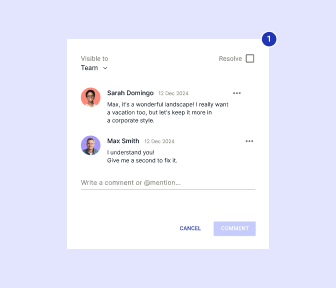
Built-in collaboration
Instapage collaboration capabilities bring your entire team together to speed up the process of landing page review, approval, and launch. No more frustrating and unnecessary revisions or edits scattered across emails. Provide instant feedback, conduct real-time page edits, and securely share your pages with outside stakeholders.
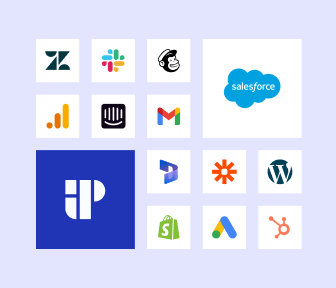
Free up time for your business
Invest time into business growth, not busy work. Launch landing pages faster with reusable forms and templates. Build once, reuse forever.
Explore all integrations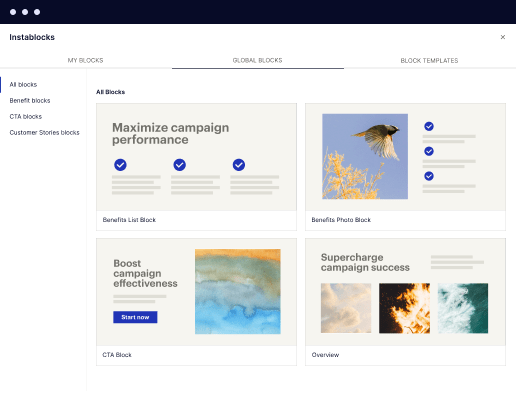
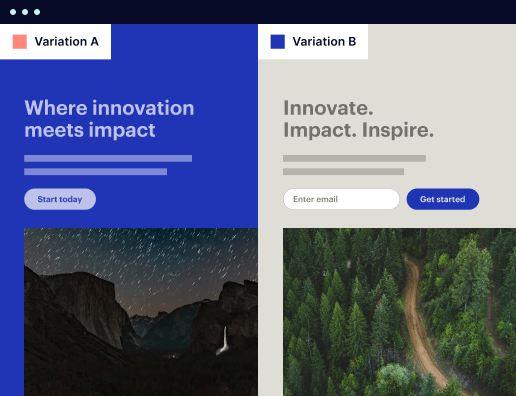
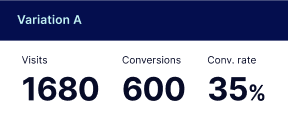
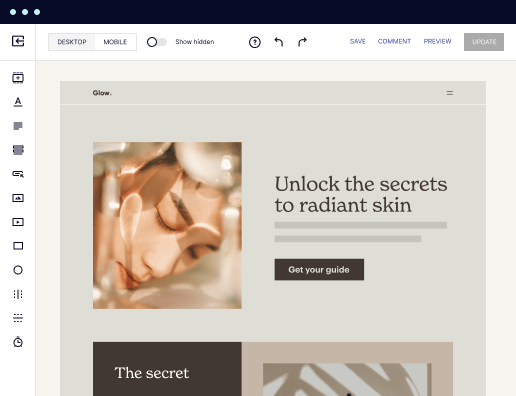

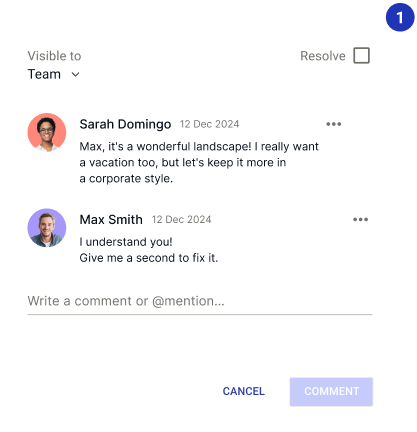
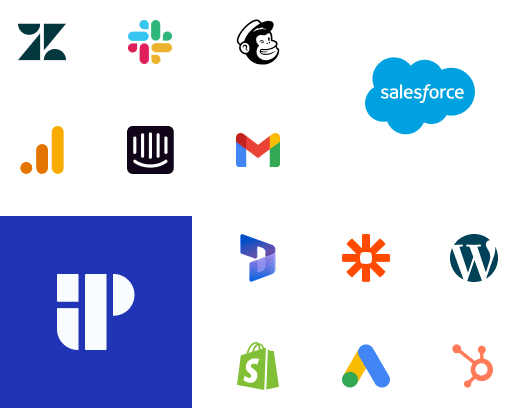
Easier page building without coding
Instapage offers a flexible and seamless page creation experience with a library of 500+ conversion-focused layouts, Instablocks®, a drag-and-drop builder, and AI content generation. With technologies like Thor Render Engine®, you can create on-brand, mobile-responsive landing pages that load quickly and start converting during initial visitor clicks.
More insights — better results
Instapage lets you see in detail how each landing page experience and variation is performing so you can make targeted changes that boost page conversions. Use heatmaps for a better understanding of on-page activities, run A/B tests and AI-assisted experiments, and then track and evaluate results within robust analytics dashboards.
More personalized experiences
Instapage lets you quickly create high-performing landing pages tailored to each of your ad campaigns. Deliver personalized experiences for distinct audiences using dynamic text replacement. Effortlessly align specific advertisements to unique pages with AdMaps. Monitor audience-level metrics using our advanced data tools.
Built-in collaboration
Instapage collaboration capabilities bring your entire team together to speed up the process of landing page review, approval, and launch. No more frustrating and unnecessary revisions or edits scattered across emails. Provide instant feedback, conduct real-time page edits, and securely share your pages with outside stakeholders.
Free up time for your business
Invest time into business growth, not busy work. Launch landing pages faster with reusable forms and templates. Build once, reuse forever.
Explore all integrationsGet started with Instapage in a few steps
-
Create your Instapage account
Start with Instapage by signing up via Google or your email. You'll get access to a free 14-day trial to discover Instapage capabilities. Feel free to cancel anytime during the 14-day trial if you decide that our product is not suitable for your business. -
Build and personalize your page
Create your first landing page from scratch or choose a template from 500+ customizable layouts. Use the drag-and-drop builder to add page elements, fonts, and backgrounds, refine content with AI, or add custom HTML, Javascript, and CSS. -
Review and make edits
Collaborate on page designs and streamline review processes. Invite your team members and stakeholders to review, edit, and provide feedback on your landing page. Collaborate knowing your page is confidential and only accessible to authorized users. -
Publish and track page performance
Publish your page to a domain or custom URL. Connect your pages to the ads you've created and track page performance within the analytics dashboard, run A/B tests and AI experiments, analyze results, and continuously optimize your landing page to maintain high conversions.
Instapage vs. Canva vs. Adobe Target – The Showdown of Landing Page Builders
Choosing the right landing page builder can feel like assembling the perfect superhero team for your marketing strategy. Just as each hero comes with unique powers, so does each platform offer distinctive features that can shape your campaign’s success. Navigating through Instapage, Canva, and Adobe Target is akin to picking your team based on the specific villains you aim to defeat in the world of online marketing. In this comparative exploration, we’ll guide you through the strengths and weaknesses of these contenders, painting a vivid picture of how they stack against each other. By the end, you will be equipped with insights to make an informed decision that not only saves costs but also amplifies conversion rates. So buckle up and get ready for an enlightening journey into the realm of landing pages. (focus on comparisons, user needs, and the impact on marketing strategies)
Meet the Contenders: A Closer Look
In the blue corner, we have Instapage, the champion of customization and high conversion rates. Known for its user-friendly interface and robust features, it empowers marketers to create tailored landing pages that resonate with their target audience. In the red corner stands Canva, a visual design powerhouse that is more commonly hailed for graphic design but now enters the arena of landing pages, equipped with a simple drag-and-drop functionality. Last but not least, in the green corner, we find Adobe Target, a sophisticated tool with a slew of analytics and targeting capabilities geared toward large businesses with a keen eye on data-driven decisions. Although these platforms all aim to streamline the creation of landing pages, the method to the madness varies greatly from one to another. (Highlighting the core strengths and market focus of each)
Round One - Feature Showdown: Who Has the Edge?
Template Variety and User Experience - A Battle of Tools
When it comes to feature sets, every contender has something unique to offer. Instapage is renowned for its extensive library of templates designed specifically for conversion. These templates allow for flexibility and customization, making it easier for marketers to adapt their pages for various campaigns. On the other hand, Canva excels in visual design and boasts stunning graphics that can enhance any landing page. However, while it offers templates, its primary focus remains on general design rather than conversion-optimized pages. Meanwhile, Adobe Target caters to organizations that leverage data analytics to tailor experiences; it integrates seamlessly with other Adobe products but may present a steeper learning curve for those unfamiliar with data-driven design. Each tool has its quirks and capabilities that address different marketing needs. The choice boils down to what features align best with your goals. (Analyzing key features that stand out)
Instapage: Your Partner in Customization and Conversion Success
Instapage stands out as the ultimate ally for marketers looking to enhance conversion rates. It provides advanced features such as A/B testing, heatmaps, and real-time collaboration – designed specifically to optimize landing page performance. What truly distinguishes Instapage is its commitment to delivering relevant landing page experiences that foster brand trust and customer loyalty. Users are empowered to create seamless and visually appealing pages effortlessly, while the platform also supports integrations with numerous marketing tools, ensuring effective campaign management. Marketers can leverage Instapage to significantly reduce costs while maximizing the impact of their campaigns, building a digital presence that leads to higher conversion rates without the hassle. (Highlighting features pivotal for effectiveness)
Round Two - Speed and Performance: Who Reigns Supreme?
Picture this: waiting in line for your morning coffee, only to have it take longer than expected. That’s the effect of slow-loading landing pages; they can frustrate potential customers and lead to higher bounce rates. Speed is crucial in the competitive landscape of digital marketing. Therefore, let’s engage in a speed race between Instapage, Canva, and Adobe Target to see who reaches the finish line first.
Instapage Advantages in Speed:
- Lightning-fast loading times that enhance user experience.
- Optimized images to reduce lag.
- Automatic adjustments for mobile-friendliness.
- CDN support to ensure global accessibility.
Canva Advantages in Speed:
- Quick design turnaround due to easy drag-and-drop features.
- Streamlined processes for graphics rendering.
- Efficient saving features for faster updates.
Adobe Target Advantages in Performance:
- Advanced targeting capabilities that improve page efficiency.
- Robust integration with other Adobe tools for enhanced performance.
- Optimized campaigns based on collected user data.
- Customization options that cater to specific user segments.
Concluding our speed battle, we find that while all three options have their merits, Instapage emerges as the top contender for speed and performance. With its lightning-fast capabilities and focus on conversion, it ensures a seamless experience for users that translates into improved metrics. When every second counts, choosing the right platform can make all the difference in retaining potential customers.
Round Three - Usability: An Easy Welcome for All
When considering usability, each platform offers a unique experience for both beginners and seasoned marketers. Instapage provides an intuitive interface that requires minimal training, making it a preferred choice for those who need to jump right into their campaigns. It offers extensive tutorials and helpful resources for users at every level. Canva, while more focused on design, still maintains a user-friendly platform that people can navigate easily after a brief acclimation period. Although its primary function is graphic design, it does offer landing page functionalities that can appeal to novices. Conversely, Adobe Target's functionalities may be overwhelming for users unfamiliar with data analytics and testing systems. However, for users who are well-versed in data-driven decisions, it serves as a powerful tool. (Encouraging tone highlighting ease of use)
Round Four - Support System: Who's Got Your Back?
Let’s take a peek behind the curtain at the customer support each contender offers. Think of their support teams as loyal sidekicks, always ready to swoop in to assist when needed. Instapage shines in this area with 24/7 support through live chat, email, and an extensive knowledge base. Canva offers a robust community forum and helpful tutorials to guide users through their design journey, but live support can be limited during certain hours. The Adobe Target support system provides comprehensive onboarding assistance, but regular queries can often rely heavily on community resources. Across the board, having reliable customer support can make or break the experience. (Highlighting types of support available)
Round Five - Price Wars: Finding Bang for Your Buck
In the final round, it's time to talk pricing, essential for making an informed decision. Instapage is often regarded for its premium offerings, rightfully so, as the features justify the cost for marketers serious about conversions. Canva is seasoned in providing an affordable alternative, especially for visual design enthusiasts. It offers a free tier, making it appealing for small businesses and startups but may lack some features exclusive to paid plans. Adobe Target, suitable for larger enterprises, presents a complex pricing structure that reflects its advanced functionalities. While all three platforms have unique pricing models, selecting the right one depends on your marketing budget and priorities. Comparing the features you'll receive against the subscription costs is critical for ensuring you choose the best value for your needs. (Detailed pricing insights and perspective)
In conclusion, each platform has its strengths and unique offerings in our comparison. Your decision should be informed by what aspects matter most to you—be it features, support, or pricing flexibility. Instapage comes through as a powerful solution that not only helps to reduce costs but also drives conversions and builds meaningful landing page experiences. For marketers looking to make a significant impact, trying out Instapage with the available free trial could be the game-changer in elevating your digital presence.

